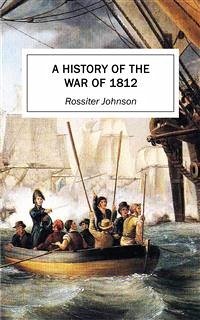The offender, says an Italian proverb, never forgives; and it is a singular fact that the deepest resentments and the most implacable hatreds are not those arising from a sense of injuries received, but from injuries inflicted. The victim of a deliberate wrong seldom treasures up a purpose of revenge, or demands anything more than a restoration of his rights; but the oppressor always hates those who have escaped from his oppression. That wise old philosopher, Ben Franklin, who died within seven years after the acknowledgment of our country as a separate nation in 1783, foresaw, even then, what did not take place till more than twenty years after his death. He declared that the war which had just closed in the surrender of Cornwallis was only the war of Revolution, and that the war of Independence was yet to be fought. When, in June, 1785, George III. received John Adams as United States Minister at his court, he said: "I was the last man in the kingdom, Sir, to consent to the independence of America; but, now it is granted, I shall be the last man in the world to sanction a violation of it." If the King was sincere in this declaration, he must have had—as Lincoln said of himself when President—very little influence with the Administration; for, almost from the first, there was systematic disregard of the rights of the new nation, with an evident purpose to humiliate her people and cripple their commerce...
Bitte wählen Sie Ihr Anliegen aus.
Rechnungen
Retourenschein anfordern
Bestellstatus
Storno









